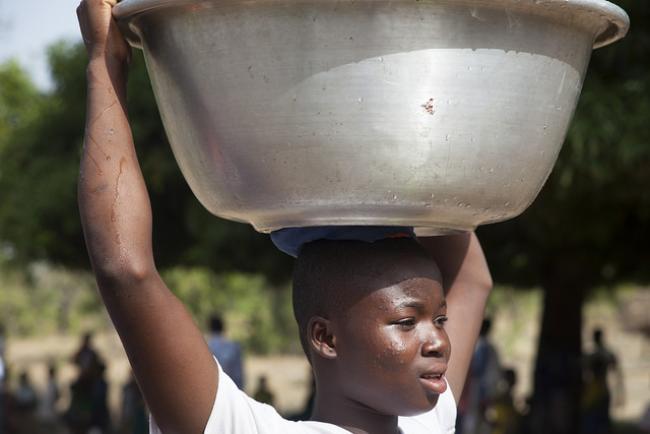We need more and faster action to achieve and sustain the SDGs.
Published on: 25/01/2018

With 2030 now only 12 years away, we need more and faster action on WASH systems strengthening to have any chance of achieving – and sustaining - the WASH Sustainable Development Goal (SDG) targets.
In July of this year, the UN's High Level Political Forum, will put the spotlight on the WASH SDGs. Ministers will be expected to report on progress and plans, and pronouncements will be made about the need for progress. And progress is badly needed: the JMP's 2017 SDG Baseline report highlights the huge challenges required to achieve the ambitious WASH targets. The logic of the "frontier analysis" carried out in 2016 by my colleague Stef Smits shows that under any sort of business as usual projections many countries will fail to achieve the SDGs.
To face this challenge, IRC will spend 2018 pushing for wholesale recognition (political and financial) of the need to build strong and resilient national WASH systems - as part of a step change in how the WASH sector does its business - particularly for rural and peri-urban areas not reached by utilities.
From a glass half-full perspective, we're joined in this push by an ever widening circle of like minded partners: in the Sanitation and Water for All partnership, the Agenda for Change coalition and many others - the need to invest in WASH systems is increasingly recognised. From a glass half-empty, I fear that we are not progressing nearly quickly enough, particularly with the larger multi and bilateral development institutions or indeed with many national governments - WASH (and especially rural WASH) is simply not yet enough of a political priority.
Too much lending and granting is still for new infrastructure with little or no serious effort to ensure the health of the systems needed to make it work over time. Too many national governments are still happy to cede responsibility for rural WASH to donors and NGOs: failing to put in place the system building blocks that would enable a transition to more professional rural service delivery (and for that matter a sector more inviting to private financing).
So, for IRC, the biggest challenge in 2018 – which incidentally is IRC's 50th year of existence – is to see a real step change in commitment to WASH Systems. What will success look like? A major development bank creating a facility to support systems strengthening – in support of their infrastructure loans; more bilateral donors putting as much emphasis on sustainability as on counting new pumps and toilets; country government's committing budget to direct support costs for rural WASH?
IRC will spend the year advocating for these changes, whilst working with our national and international partners to make systems strengthening happen in our partner districts and countries, systematising lessons learned and sharing these through Amplify, our blogs and publications, and at sector events. And in early 2019, to celebrate our 50th birthday, we'll be hosting a major symposium on all things WASH Systems, in The Hague. We hope to see many of you there, and in the meantime wish you a productive start to the year.
At IRC we have strong opinions and we value honest and frank discussion, so you won't be surprised to hear that not all the opinions on this site represent our official policy.